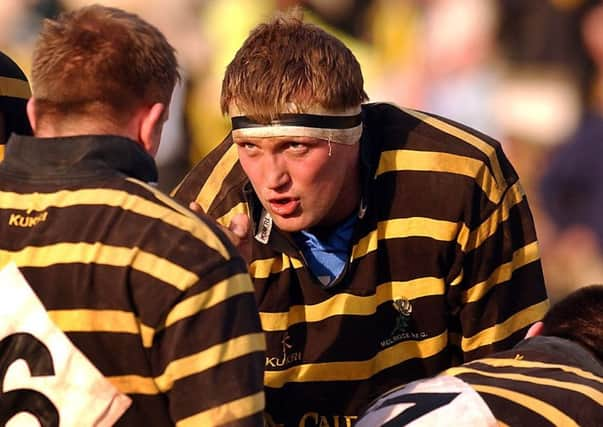Kevan Christie: Doddie Weir's diagnosis raises awareness of the cruellest of diseases


There’s something about this condition that taps into our deepest fears, given that it appears to ambush healthy individuals, with their whole lives ahead of them - at the peak of their powers.
Much has been written but little is understood about MND, a rare condition that progressively damages parts of the nervous system, leading to muscle weakness, stiffening and waste. Motor neurones control muscle activity, including walking, gripping, speaking, swallowing and breathing – as the condition progresses people with MND will find some or all of these activities increasingly difficult.
On top of all that - there’s no cure.
Advertisement
Hide AdAdvertisement
Hide AdHowever, it bears testament to the strength of individuals like Doddie Weir, former Rangers star Fernando Ricksen and the political campaigner Gordon Aikman that the plight of the 450 or so people in Scotland currently living with MND is never far from our minds. The first thought of Doddie Weir’s like so many who have received the news was – ‘what can I do to help others?’
The press release from the University of Edinburgh didn’t even mention his diagnosis in the introduction - stating that the former British and Irish Lion, who earned 61 caps for Scotland, was joining forces with researchers to help tackle motor neurone disease. Headline hungry journos, God-forbid had to read as far as the second paragraph to find out the big man’s diagnosis.
Importantly, Doddie has pledged his support for research at the Euan MacDonald Centre, a Scotland-wide research initiative based at the University of Edinburgh.
The Centre was set up in 2007 by Euan and his father Donald MacDonald, a leading Scottish businessman. It provides support and undertakes cutting-edge research into MND as well as training the next generation of research leaders.
One of Doddie’s opponents in the 1990s, South Africa’s Joost Van Der Westhuizen, visited the Centre in 2013 to pass on his knowledge and expertise – sadly he passed away in 2017. Despite reduced life expectancy of around three years for many with MND, Euan who was diagnosed 14 years ago continues to carry out vital work and provides a remarkable insight into what it means to live with MND.
Writing on his blog for Global MND Awareness Day which was on Tuesday, the 43-year-old, Edinburgh-based, former investment banker highlights how big a part technology plays in helping him communicate. Euan tells how his communication device is the “most important” piece of equipment he has, as essential to him as his ventilator. He says that although he can’t speak he can still make his voice heard through things like social media and email.
It is through initiatives like the Euan MacDonald centre that hope of finding a cure for MND lives on. The Ice Bucket Challenge raised somewhere in the region of £87 million for MND, also known as amyotrophic lateral sclerosis (ASL) and funded six research projects.
One of them has now led to the discovery of a new gene linked to the condition.
Advertisement
Hide AdAdvertisement
Hide AdDefective variants of the gene, NEK1, are only found in 3 per cent of sufferers but are present in both inherited forms of the disease and “sporadic” cases without any family connection. A small step perhaps, but scientists believe the gene could help them develop new treatments. We live in hope.